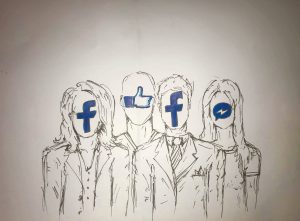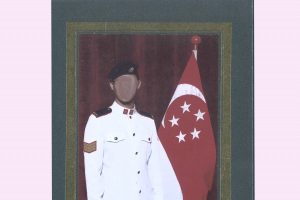
Our Mourning Ritual: Life after Death Online
by Christian Hill | September 10, 2015
Earlier this year, on Thursday the 26th of March, I attended my father’s funeral. At the reception I was approached by a man I had never met before. Once he introduced himself I instantly recognised his name, but couldn’t pin down where from. The name hung in the back of my skull. I suspected it was just one of a multitude my dad had mentioned over the years. Only when researching for this article did I realise where I had heard the name. He was tagged in my dad’s last Facebook status. After my dad passed away all of his accessible ‘last words’ became hugely significant to me: statuses; tweets; voicemails; emails; texts. I was, and still am, determined to hold on to him. Through Facebook I was able to capture my father’s ‘best self’. To cope with my grief, I called upon a catalogue of words, music and photographs all dedicated to my father.
Suddenly, the function of social media changed. Messages came flooding in on his wall; old photographs and stories from his childhood emerged. Perhaps the anecdote that touched me the most was the tribute to his old band, Electric Hernia. Formed in their early teenage years, it was deeply moving to see the lasting impact my dad had on their lives:
“Together we waged a campaign to recreate the sixties at the beginning of the eighties. We created our own magical world — memorized the lyrics of Pink Floyd, burned josticks, wore afghan coats, chanted Hare Krishna, played The White Album backwards, brewed dandelion wine, and set secret campfires deep in Adel woods… Hilly — I haven’t seen you for so many years but have enjoyed seeing your new life and wonderful family on Facebook. I had always hoped for some kind of Hernia Reunion, maybe in a pub in Leeds one night so we could talk about the old times and get some of that laughter back. That will never happen now. It hurts my heart we never got to see each other again. I think I speak for all the band when I say we will miss you and we love you… xxxx”
My father’s digital fingerprint provided almost tangible evidence of the positive impact he had on those around him. It was easy for me to see him in this way and rely on his online persona. How could I have lost my dad? Here he was online. If you can still reach out to them, still message them, if you’re still receiving emails about fucking health insurance addressed to them, how can they be gone? Rather than face the truth, the more palatable belief was that he’d eventually see and reply to these messages. I would call my dad up to five times a day hoping to hear his voice. There was something cathartic about reclaiming an echo of the relationship we had, even when I knew he wouldn’t return the call.
What do you do with an online presence when that person has gone? A relatively new Facebook policy allows for accounts to be ‘memorialised’, enabling family members to monitor or, if requested, delete the account of their dead loved one. The policy requires proof of your relationship to the person and of their death; once given, the profile is transformed into a ‘memorial page’ which only confirmed friends have access to. The transformation allows sensitive information such as birthday reminders to be removed at will. Facebook’s policy reflects the demand for a psychosocial space to deal with death online.
Online mourning is young, and the social norms are still being developed. As with any other cultural ritual, unspoken protocols take time to develop and solidify. Our expression of grief through social media will evolve. Just as one knows to wear black at a funeral, so too might we one day understand the rules and formalities of online rituals. Death is the most profound point at which our online and offline selves converge. In my experience, social media provided solace when I needed it. For me, there was no need to rush into grief. I tried to reach out for help where it was available, but that wasn’t always possible. It’s a difficult experience to let people in on. Facebook operated as a halfway point between the life I had before and the reality I am presented with now. Intangible but permanent, synthetic yet sincere – grief is here to stay, and has found another home.




